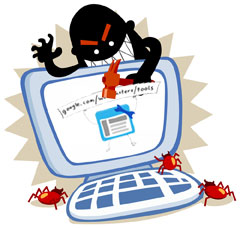 There are two reports in the Google Webmaster Help of webmasters noticing that the schema aka rich snippet details show third-party data and links in the rich snippet testing tool.
There are two reports in the Google Webmaster Help of webmasters noticing that the schema aka rich snippet details show third-party data and links in the rich snippet testing tool.
The schema is showing up in Google's Rich Snippet tool as showing third-party web sites, some leading to pornography sites or drug sites. To me, this looks like a sophisticated hack of some sorts.
One webmaster claimed it is not server side that it is something deeper. He wrote:
It is 100% sure this isn't caused client-side (server) because these clients use different hosting-providers servers, server configs site techniques, html types, CMS's and so. Besides the fact that they all use schema.org they have absolutely nothing in common.
Here is a screen shot showing the hack of some sorts:

There are plenty of other examples in the thread of this happening.
Structured data is one of the most trusted methods of communicating what your site is about to Google. If that gets hacked and misdirected, how much of an impact can that have on your ranking, trust and confidence.
The question is, how did this happen and what can be done to prevent it.
The scary part is that it is hard for webmasters to see these hacks and by the time you see it, it is too late. Much like a malware hack, but Google does a good job communicating to the webmaster of malware hacks.
Google has not yet replied to the issue in the thread.
Forum discussion at Google Webmaster Help.
Update: Seems like this was just a display bug on Google's part. After a few days of investigative work, John Mueller of Google responded saying:
The team here has been looking into this since your reports here, and this seems to be from an issue on our side. We've been able to resolve the issue, but it may still take a few days for the changes to be live everywhere. According to my information, this was only an issue in the display of the data, it did not cause any of that data to be visible in search, or to otherwise affect search results. We apologize for the confusion this has caused and have taken steps to prevent this and similar issues from occurring in the future.
Image credit to BigStockPhoto for hacking



